 W
WAlexander Leslie of Auchintoul (1590–1663) was a Scottish soldier in Swedish and Russian service, Russia's first General and reformer of the Muscovite army in cooperation with Boyar Boris Morozov. He was the son of William Leslie, third laird of Crichie, a branch of the Balquhain Leslies. In 1618 he was an officer in Polish employ, captured by the Russians, but released. He was the owner of Gerchikovo manor and voivode of Smolensk.
 W
WMajor general (generalfältvaktmästare) Samuel Cockburn was a Scottish soldier in the service of Sweden. He was born around 1574 in Scotland. He entered Swedish service in 1598 where he participated in the Swedish civil war between Sigismund Vasa and Duke Karl Karl IX.
 W
WRobert Douglas (1727–1809) was a Scottish-born soldier who was commander of the garrison city of 's-Hertogenbosch in the Netherlands from 1780 to 1794. He was governor there from 1784.
 W
WRobert Douglas, Count of Skenninge, Baron of Skalby, was a Scottish cavalry general during the Thirty Years' War rising to the rank of Field Marshal (1657–1662) in the Swedish-Polish wars that followed.
 W
WPatrick Ruthven, 1st Earl of Forth and 1st Earl of Brentford was a Scottish nobleman, general, and diplomat.
 W
WJames Francis Edward Keith was a Scottish soldier and Generalfeldmarschall of the Royal Prussian Army. As a Jacobite he took part in a failed attempt to restore the Stuart Monarchy to Britain. When this failed, he fled to Europe, living in France, and then Spain. He joined the Spanish and eventually the Russian armies and fought in the Anglo-Spanish War and the Russo-Swedish War. In the latter he participated in the conquest of Finland and became its viceroy. Subsequently, he participated in the coup d'état that put Elizabeth of Russia on the throne.
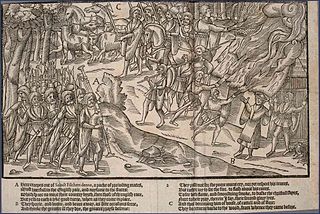 W
WA kern was a Gaelic warrior, specifically a light infantryman, in Ireland in the late Middle Ages.
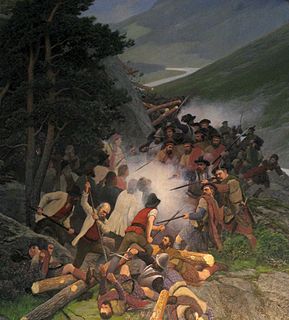 W
WThe Battle of Kringen involved an ambush by Norwegian peasant militia of Scottish mercenary soldiers who were on their way to enlist in the Swedish army for the Kalmar War.
 W
WDavid Leslie, 1st Lord Newark was a Scottish-born cavalry officer. He fought for the Swedish army of Gustavus Adolphus during the Thirty Years' War. He had entered Swedish service in 1630, serving as a captain in the regiment of Alexander Leslie. He returned to Scotland just before the end of the Bishops' War, and participated in the English Civil War and Scottish Civil Wars.
 W
WAlexander Leslie, 1st Earl of Leven was a Scottish soldier in Swedish and Scottish service. Born illegitimate and raised as a foster child, he subsequently advanced to the rank of a Swedish Field Marshal, and in Scotland became Lord General in command of the Army of the Covenanters, a privy councillor, captain of Edinburgh Castle, Lord Balgonie and Earl of Leven. In England he commanded the Army of the Solemn League and Covenant and was senior commander of the Army of Both Kingdoms (1642–1647). Leslie served in the Thirty Years' War, the Bishops' Wars, and most of the English Civil War, fighting primarily in the First English Civil War. Leslie would live a long life, dying roughly at the age of 80 or 81.
 W
WJames Lumsden (1598–1660) was a Scottish soldier who served in the Swedish army of Gustavus Adolphus during the Thirty Years' War, and subsequently commanded Scottish Covenanter armies.
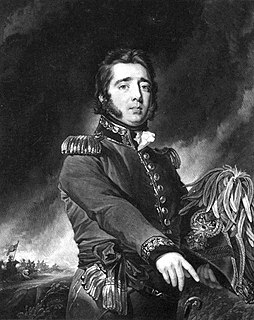 W
WGeneral Gregor MacGregor was a Scottish soldier, adventurer, and confidence trickster who attempted from 1821 to 1837 to draw British and French investors and settlers to "Poyais", a fictional Central American territory that he claimed to rule as "Cazique". Hundreds invested their savings in supposed Poyaisian government bonds and land certificates, while about 250 emigrated to MacGregor's invented country in 1822–23 to find only an untouched jungle; more than half of them died. Seen as a contributory factor to the "Panic of 1825", MacGregor's Poyais scheme has been called one of the most brazen confidence tricks in history.
 W
WJohn Mackenzie, Lord MacLeod was a Scottish Jacobite and soldier of fortune.
 W
WGeneral (Kaïd) Sir Harry Aubrey de Vere Maclean, was a Scottish soldier, and instructor to the Moroccan Army.
 W
WSir James Ramsay, known as "Black Ramsay", was a Scottish soldier in the Swedish service.
 W
WRedshank was a nickname for Scottish and Irish mercenaries from the Highlands' Western Isles and greater Ireland. They were a prominent feature of Irish armies throughout the 16th century. They were called redshanks because they went dressed in plaids and waded bare-legged through rivers in the coldest weather. An alternative etymology, illustrated by Jamieson by a quote from Sir Walter Scott, is that it referred to the untanned deer leather buskins worn by Highlanders, although Jamieson notes that Scott's source, John Elder of Caithness, actually stated its origin was from their habit of going "bare-legged and bare-footed". The term was not derogatory, as the English were in general impressed with the redshanks' qualities as soldiers.
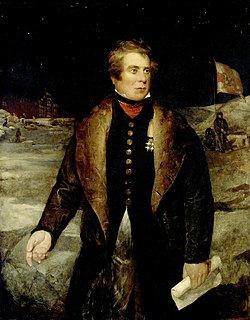 W
WSir John Ross was a Scottish Royal Navy officer and polar explorer. He was the uncle of Sir James Clark Ross, who explored the Arctic with him, and later led expeditions to Antarctica.
 W
WJohn Ruthven was a military officer who served in Denmark and Sweden during the Thirty Years' War before returning for brief service in the British Civil Wars. He served first as a captain in Danish service from 1627. As King Christian IV of Denmark-Norway made peace with the Habsburg Emperor in 1629 Ruthven, along with many other Scottish soldiers in Danish service, then turned to Sweden to continue the war. He first appears in Swedish service in 1629 serving as a captain of the Scottish infantry at Stralsund under the command of Alexander Leslie. He was soon promoted lieutenant-colonel in Leslie's infantry regiment and led an infantry-regiment in the battle of Breitenfeld on 17 September 1631 as full colonel. He later took part in the battle at the Alte Veste near Nuernberg on 3 September 1632, and later took part in the bloody conquest of Landsberg/Lech (Bavaria) under the command of Lennart Torstensson.
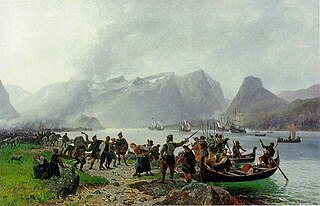 W
WGeorge Sinclair was a Scottish mercenary who fought in the Kalmar War, and was posthumously remembered in Norway and the Faroe Islands through the ballad Sinklars Visa.